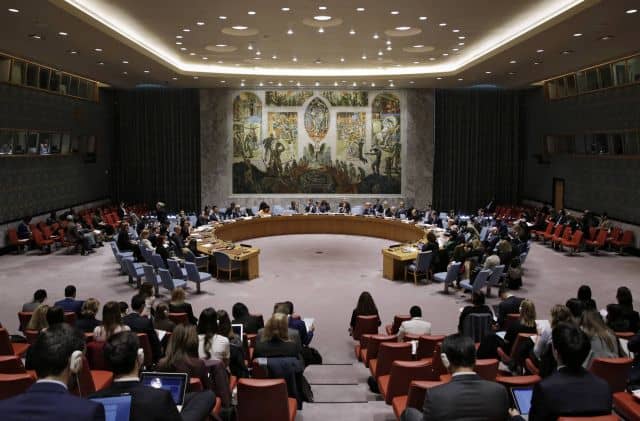
On 9 November, 2011, the Security Council held its semi-annual open debate on the Protection of Civilians in Armed Conflict, in order to evaluate progress, steps needing to be taken, and specific situations for consideration in light of states' commitments in S/Res/1674 (2006), S/Res/1296 (2000) and S/Res/1265 (1999), regarding the responsibility to protect civilians in particular, and at the World Summit in 2005, regarding the Responsibility to Protect generally.
The Council heard briefings from Ms. Navanethem Pillay, UN High Commissioner for Human Rights; Ms. Catherine Bragg (speaking for Valerie Amos), Assistant-Secretary-General for Humanitarian Affairs and Deputy Emergency Relief Coordinator; and Mr. Philip Spoerri, Director for International Law and Cooperation of the ICRC. It heard statements from the President of Portugal, Aníbal António Cavaco Silva; UN Secretary-General Ban Ki-Moon, each member of the Security Council, and twenty-seven additional non-Council member states.
The Council debate universally emphasized that despite much normative progress in the rights of civilians to protection in armed conflict, much remains to be done to enforce these rights in reality. The Commission took the opportunity to restate the preparedness of the Commission to face this challenge as well as the reasons for which the Security Council might consider for entrusting the Commission with such a task;
The most important point is the legitimacy of the International Humanitarian Fact-finding Commission as a treaty body established under the Geneva Conventions. The very treaty regime which is the source of the obligations the respect of which is at stake in the inquiries to be undertaken is also the basis for the inquiry commission. This fact, together with an election process which ensures the independence and impartiality of its members, instills confidence in the Commission's work. This will enhance, we submit, the acceptance of its findings.